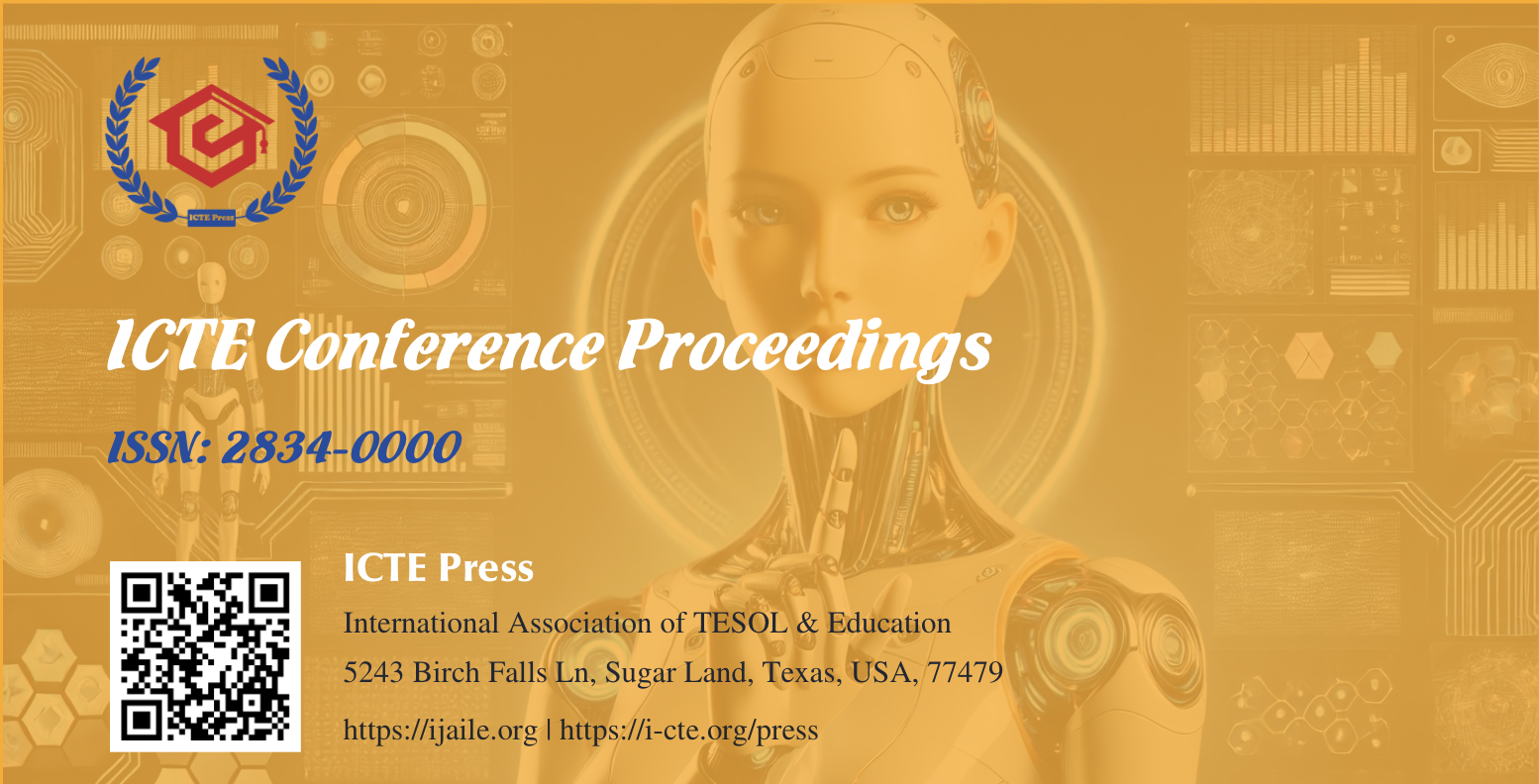Students’ Perspective on Applying AI in English Learning and Teaching – A Study at UEH
DOI:
https://doi.org/10.54855/ictep.2458Keywords:
AI application, students’ perspective, teachers’ rolesAbstract
With the rapid advancement of technology, the integration of high-tech tools, particularly artificial intelligence (AI), into language learning and teaching has become increasingly popular. This surge is accompanied by numerous studies exploring the evolving roles of teachers and the effective application of AI in English instruction. This research explored students' perspectives on AI in English learning and its use by teachers at the University of Economics Ho Chi Minh City (UEH). Using a mixed-method approach, data was gathered through a questionnaire survey and in-depth interviews with 50 first-year students majoring in Accounting, Finance, and International Business. The findings indicate that students hold realistic and well-balanced views on teachers' use of AI in English teaching, showing appropriate attitudes toward its classroom application. The results suggest that English teachers should adopt AI sensibly and creatively to maximize its potential benefits while avoiding over-reliance on this powerful tool.References
Abdulrahman M, A.-Z. (2024). From traditionalism to algorithms: Embracing Artificial Intelligence for Effective University Teaching and learning. IgMin Research, 2(2), 102–112. https://doi.org/10.61927/igmin151
Bryman, A. (2016). Social Research Methods. Oxford University Press.
Campbell, R. (2024). Redefining the role of teachers in the AI era (2024). Richard Campbell. https://richardccampbell.com/the-role-of-teachers-in-the-ai-era/
Cohen, L., Manion, L., & Morrison, K. R. B. (2017). Research Methods in Education. Routledge.
Grimes, D., & Warschauer, M. (2010). Utility in a Fallible Tool: A Multi-Site Case Study of Automated Writing Evaluation. 8(6). http://files.eric.ed.gov/fulltext/EJ882522.pdf
Guba, E. G., & Lincoln, Y. S. (2003). Fourth Generation Evaluation. Sage Publ.
Huang, X., Zou, D., Cheng, G., Chen, X., & Xie, H. (2023). Trends, Research Issues and Applications of Artificial Intelligence in Language Education. Educational Technology & Society, 26(1), 112–131. https://www.jstor.org/stable/48707971
Johnson, A. M., Guerrero, T. A., Tighe, E. L., & McNamara, D. S. (2017). iSTART-ALL: Confronting Adult Low Literacy with Intelligent Tutoring for Reading Comprehension. Grantee Submission. http://files.eric.ed.gov/fulltext/ED577120.pdf
Johnson, W. L. (2007). Serious Use of a Serious Game for Language Learning. 20(2), 175–195. https://doi.org/10.3233/jai-2010-0006
Lee, K., Kwon, O. W., Kim, Y. K., & Lee, Y. (2015). A hybrid approach for correcting grammatical errors. https://doi.org/10.14705/rpnet.2015.000359
Lin, C. C., Liu, G. Z., & Wang, T. I. (2017). Development and usability test of an e-learning tool for engineering graduates to develop academic writing in English: A case study. 20(4), 148–161.
Malcolm, N. (2023). Teachers’ crucial role in the era of AI Education Applications. LinkedIn. https://www.linkedin.com/pulse/teachers-crucial-role-era-ai-education-applications-norman-malcolm
Nava, A., & Pedrazzini, L. (2018). Second Language Acquisition in Action. https://doi.org/10.5040/9781474274906
Nguyen, T. N., & Nguyen, T. T. (2024). Benefits of teaching English to children in virtual classes: Teachers’ perspectives from Khanh Hoa Province, Viet Nam. International Journal of Language Instruction, 3(1), 91–107. https://doi.org/10.54855/ijli.24316
Pham, T. C. (2022). Effects of using technology to engage students in learning English at a secondary school. International Journal of Language Instruction, 1(1), 86–98. https://doi.org/10.54855/ijli.22118
Pokrivcakova, S. (2019). Preparing teachers for the application of AI-powered technologies in foreign language education. Journal of Language and Cultural Education, 7(3), 135–153. https://doi.org/10.2478/jolace-2019-0025
Wijekumar, K., Meyer, B. J. F., & Lei, P. (2017). Web-based text structure strategy instruction improves seventh graders’ content area reading comprehension. Journal of Educational Psychology, 109(6), 741–760. https://doi.org/10.1037/edu0000168
Zou, B., Guan, X., Shao, Y., & Chen, P. (2023). Supporting Speaking Practice by Social Network-Based Interaction in Artificial Intelligence (AI)-Assisted Language Learning. Sustainability, 15(4), 2872. https://doi.org/10.3390/su15042872
Downloads
Published
How to Cite
Issue
Section
License
Copyright (c) 2024 Duong Thi Thuy Uyen, Nguyen Manh Hieu

This work is licensed under a Creative Commons Attribution 4.0 International License.
Authors retain copyright and grant the picte the right of first publication with the work simultaneously licensed under a Creative Commons Attribution 4.0 International License that allows others to share the work with an acknowledgment of the work's authorship and initial publication in this journal.
Authors are able to enter into separate, additional contractual arrangements for the non-exclusive distribution of the proceedings' published version of the work (e.g., post it to an institutional repository, in a journal, or publish it in a book), with an acknowledgment of its initial publication in this proceedings.
Authors are permitted and encouraged to post their work online (e.g., in institutional repositories or on their website) prior to and during the submission process.










